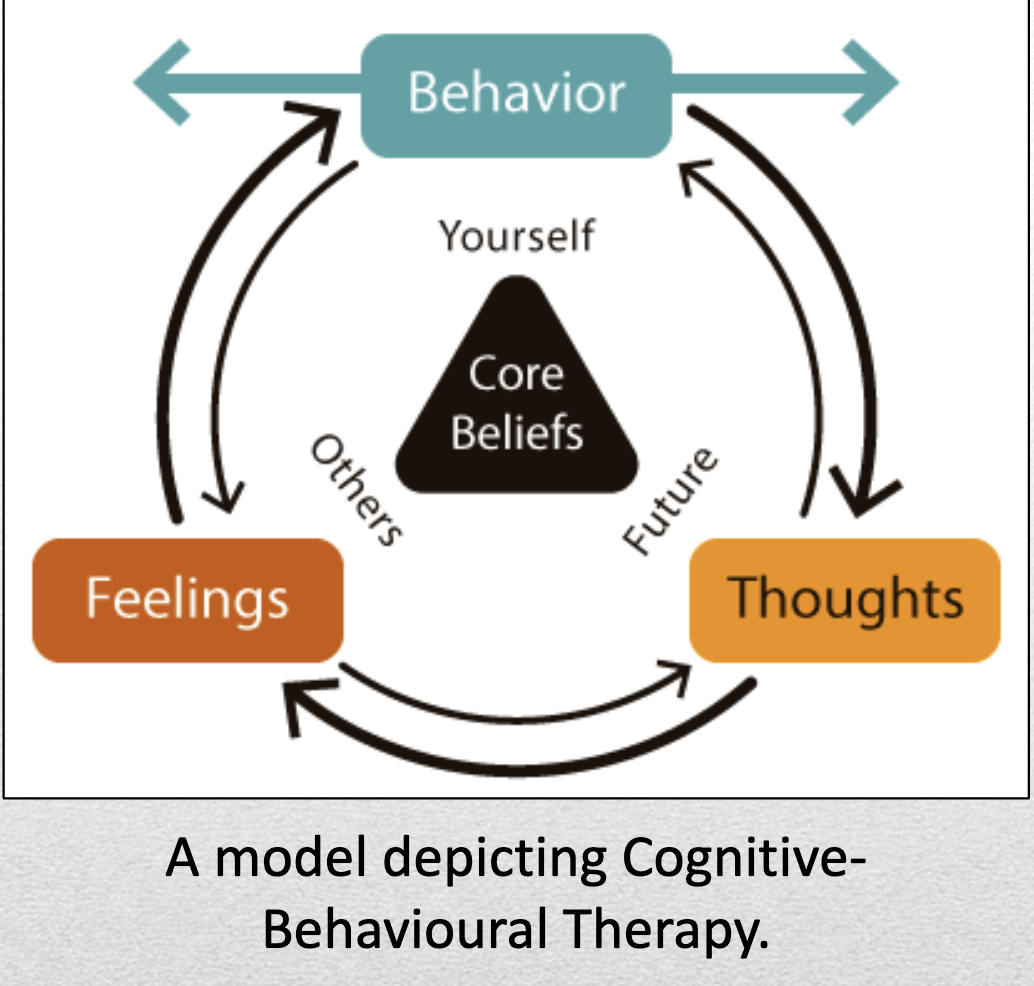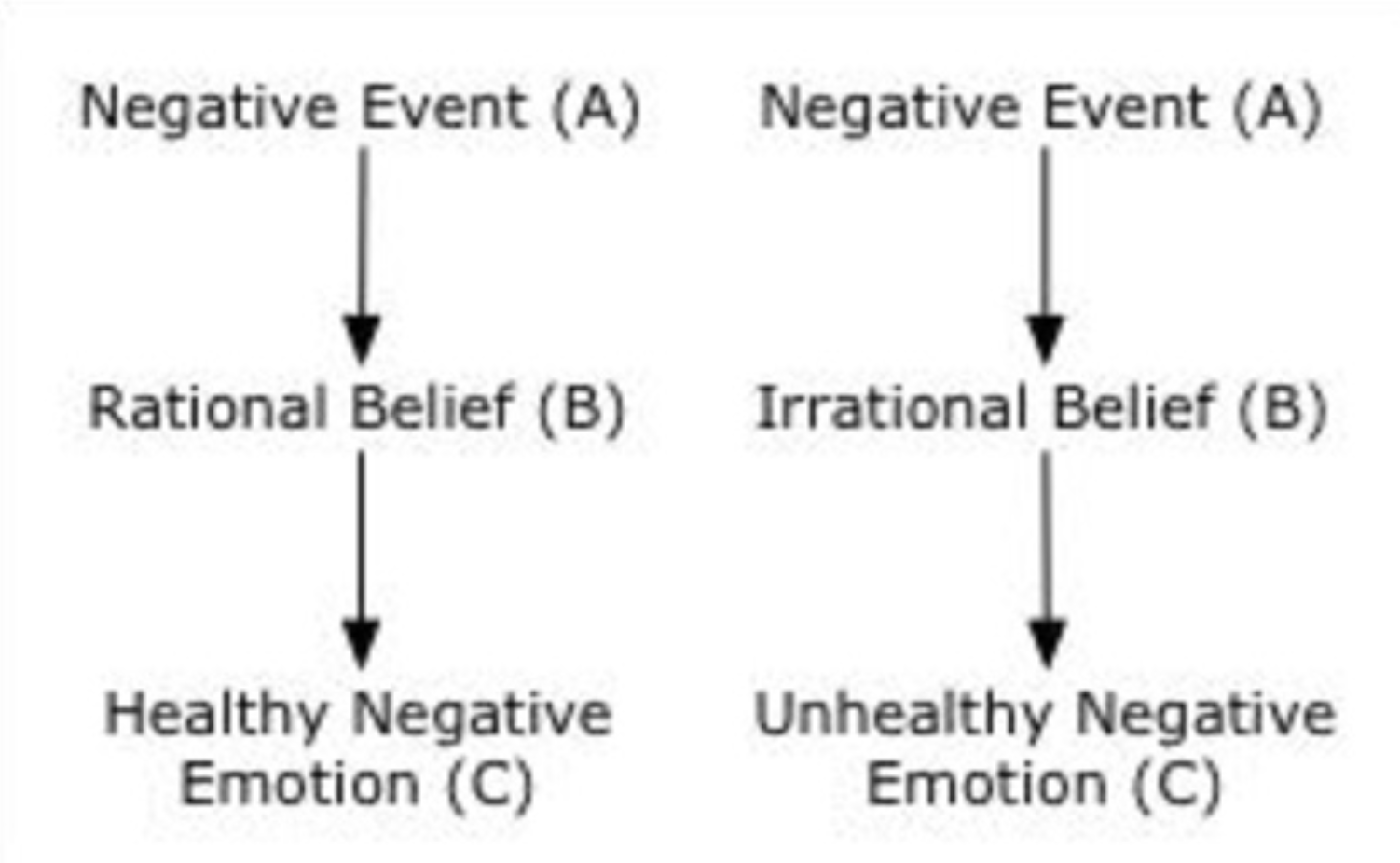Week 10 | Day 3 | PSYA02
Week 10 | Day 3 | PSYA02
*Continuing from last lecture
3. Behavioural Therapy
- Behavioural and cognitive therapies are the most common type of psychotherapy in Canada (lots of research that it’s effective)
- Behavioural/cognitive therapy relies on behaviourism
Behaviourism: study of observable, measurable variables
- Focuses on changing behaviour (action) or cognition (thoughts) to combat mental illness.
- Behavioural therapy mostly centres around conditioning
Operant Conditioning: rewards for positive behaviours; punishments for negative behaviour
- One method is token economy (using an object to reinforce a good behaviour)
Classical Conditioning: neutral stimulus is associated with meaningful stimulus
- One type is exposure therapy (harmless, repeated exposure to a “threatening” stimulus that causes a reduction in threat response because it’s a normal for them now)
4. Cognitive Therapy
- Behaviour therapy → change actions
- Cognitive therapy → change unhealthy thought patterns
- Cognitive therapists focus on restructuring of irrational, negative thought process to rational, positive ones
- A therapeutic approach that teachers clients to question the automatic beliefs, assumptions, and predictions that lead to negative emotions
- Eg. “I will never be able to make friends”
- What friends have you have in the past? When/where?
- Eg. “I will never be able to succeed in school”
- What successes have you had in the past? Where? When?
- Eg. “I will never be able to make friends”
- A therapeutic approach that teachers clients to question the automatic beliefs, assumptions, and predictions that lead to negative emotions
Cognitive-Behavioural Therapy
- Most common psychological treatment for depression and anxiety
- CBT is considered:
- Problem-focused (short term, action-oriented)
- Eg. let’s target the feeling that you’re bad at school
- Action-oriented
- Transparent (unlike psychanalysis)
- Problem-focused (short term, action-oriented)
ABC Model:
- A: Activating event
- Actual event
- Client’s immediate interpretation of event
- Eg. failing an exam
- B: Beliefs
- Evaluations
- Rational
- Irrational
- Eg. believing that you have to be successful in everything
- C: Consequences
- Emotions
- Behaviours
- Other thoughts
- Eg. felt ashamed, embarrassed, and wanted to drop out of uni

— New lecture —
Biological Treatment
- Consists of:
- Medications (anto-psychotic, anti-anxiety, herbal/natural products)
- Electroconvulsive therapy (ECT)
- Transcranial magnetic stimulation (TMS)
- Psychosurgery (destruction/repair of specific brain areas)
Anti-Psychotic Medication
- Originally an accident
- Chlorpromazine was developed in Frace as an allergy medication
- Made patients sleepy & blocked dopamine receptors
- Resulted in euphoric calm patients instead of agitated patients but had significant side effects
- Introduction of these anti-psychotic medications changed the way that schizophrenia is treated
Anti-Anxiety Medication
- Benzodiazepines is an anti-anxiety medication
- Facilitate GABA neurotransmitter activity → inhibit anxiety
- Drawbacks are: drug tolerance, withdrawal symptoms, drowsiness, poor coordination
Anti-Depressant Medication
- Also originally an accident
- Monoamine oxidase inhibitors used to treat tuberculosis in 1950s also elevated patients’ mood
- Prevented breakdown of serotonin and dopamine
- Had intolerable side effects